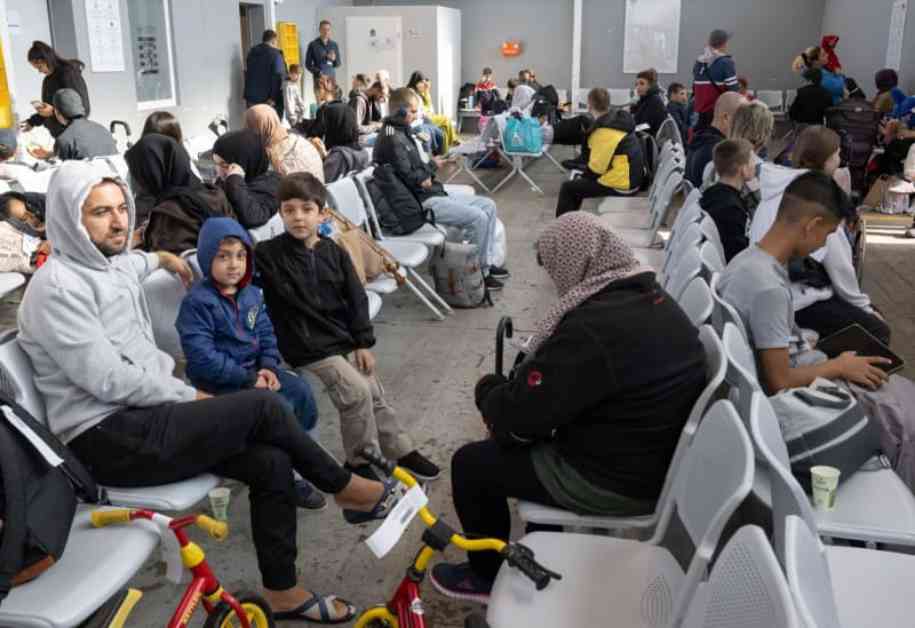The number of refugees living in Germany has reached a new record high in mid-2024, according to the federal government’s response to a question from the far-left Die Linke party. As of the end of June, there were approximately 3.48 million refugees with various residency permits in the country, which is an increase of about 60,000 compared to the end of 2023. This information was initially reported by the Neue Osnabrücker Zeitung newspaper.
The surge in refugee numbers can be attributed to the influx of war refugees from Ukraine in 2022 following Russia’s invasion. The Central Register of Foreigners, which the federal government based its response on, takes into account both arrivals and departures of refugees. Despite the increase in refugee numbers, the data showed a slight decrease in the number of individuals legally required to leave the country in the first half of 2024.
By June 30, there were 226,882 foreigners who were supposed to leave Germany but were still present in the country, with a significant portion of them being from Iraq. Among this group, nearly 20% were required to leave, yet the majority were permitted to stay under a tolerance policy. Tolerated individuals are those who are obligated to depart but are not deported due to various reasons such as lack of identification documents, medical conditions, or having a child with a residence permit.
Comparatively, at the end of 2023, approximately 243,000 individuals who were mandated to leave Germany were still residing in the country, with the majority being tolerated. Clara Bünger, a legal policy expert for Die Linke, advocated for the cessation of expulsion measures for those without the right to remain in the country. She criticized the stringent criteria set by the current federal government but acknowledged that it has provided many individuals with a pathway to a stable residency status.
The new immigration law that came into effect on December 31, 2022, allows individuals who have been in Germany for at least five years by October 31, 2022, with a tolerated stay, residence permit, or other permits, to obtain a probationary residence permit valid for 18 months along with their family members.
The continuous rise in refugee numbers poses challenges for Germany in terms of integration, housing, and social services. As the country grapples with this situation, it becomes imperative to strike a balance between humanitarian aid and ensuring the proper management of refugee inflows. Efforts to streamline the asylum process, provide language and skills training, and foster cultural exchange are crucial in facilitating the successful integration of refugees into German society.

